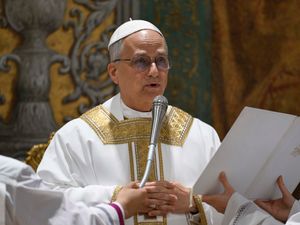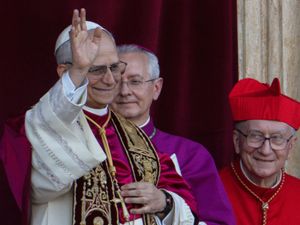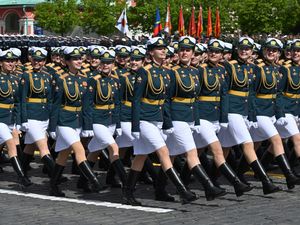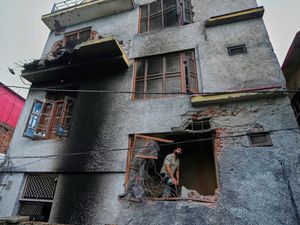Haiti’s police chief replaced after more officers killed by gangs
Gang members control 80% of Port-au-Prince and have more powerful weapons than the police.
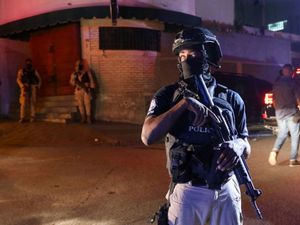
Haitian leaders have ousted Frantz Elbe, the director of Haiti’s National Police, following months of criticism that he was not doing enough to protect officers under attack by gangs.
Former Haitian police chief Normil Rameau, who was dismissed from the post nearly four years ago under a different administration, will once again take the helm of an underfunded and ill-equipped department that only has 4,000 officers on duty at a time in a country of more than 11 million inhabitants.
More than 2,500 people have been killed or injured across Haiti in the first three months of the year as gang violence continues to surge.
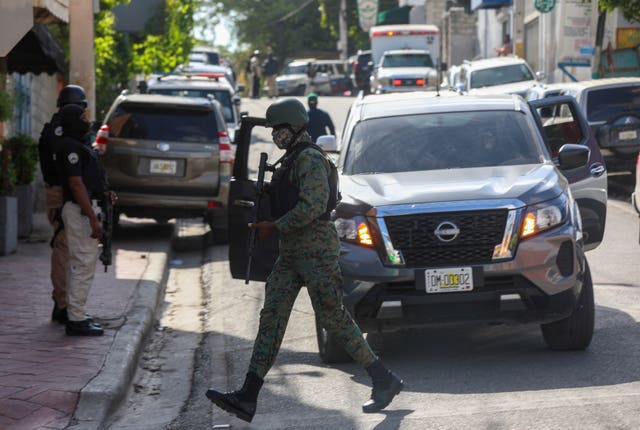
Among those killed have been nearly two dozen police officers, overwhelmed by gangs that control 80% of capital Port-au-Prince and have more powerful weapons.
The most recent killings targeted three officers from a newly formed anti-gang tactical unit who were on patrol in an armoured vehicle. A fourth remains missing.
Mr Rameau’s appointment comes as a newly selected prime minister and Cabinet take the reins of Haiti’s government with a transitional presidential council at their side.
Mr Rameau previously served as director general of police under former president Jovenel Moise, who appointed him in August 2019. Prior to that, he oversaw the detective division.
He was ousted as police chief in November 2020 after Prime Minister Joseph Jouthe accused him of being incompetent and not producing results at a time when gangs were seizing control of more territory.
Haiti’s police unions have repeatedly called for Mr Elbe’s resignation and arrest, noting that gangs have raided and burned at least 30 police stations and sub-stations in recent months as part of a series of attacks that began on February 29.
The gangs targeted critical state infrastructure and the violence led to the eventual resignation of prime minister Ariel Henry.
On Wednesday, a police union known as SPNH-17 held a press conference to condemn the state of the department and deplore the officers killed.
“Look at these young men, hacked to death,” said spokesman Garry Jean-Baptiste as he pointed to rows of pictures behind him that depicted officers killed on duty.
The union also issued a statement on the day Haiti marked the creation of its police department.
“Haiti’s National Police is 29 years old, but it still can’t walk…it hasn’t grown because corruption and incompetence has held it hostage,” it said.
Meanwhile, another police union known as SYNAPOHA called on newly installed Prime Minister Garry Conille this week to make strengthening the department a priority.
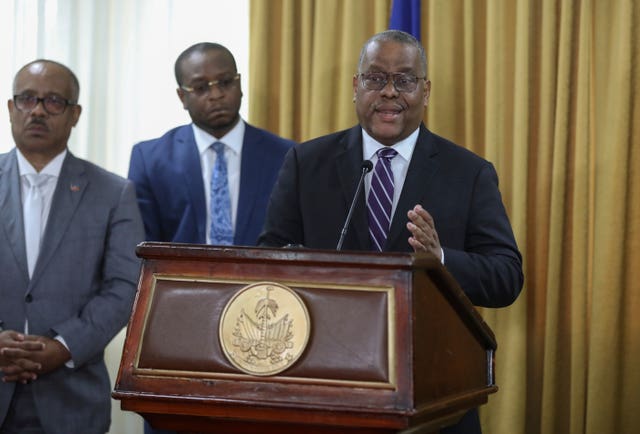
Mr Conille went along on a patrol with police on June 2, donning a flak jacket and helmet as he entered an armored vehicle. SNPH-17 said at the time that the prime minister would notice during the patrol that the country had no leadership and that criminals had too much control.
“The prime minister must see the need to have another team at the top,” the union said.
Mr Elbe was appointed head of Haiti’s National Police in October 2021, replacing Leon Charles.
Last year, under Mr Elbe, at least 36 officers were killed in gang-related violence from January to mid-August, according to a UN report.
The international community has provided training and other resources to help boost Haiti’s National Police, which also is awaiting the UN-backed deployment of a police force from Kenya.

